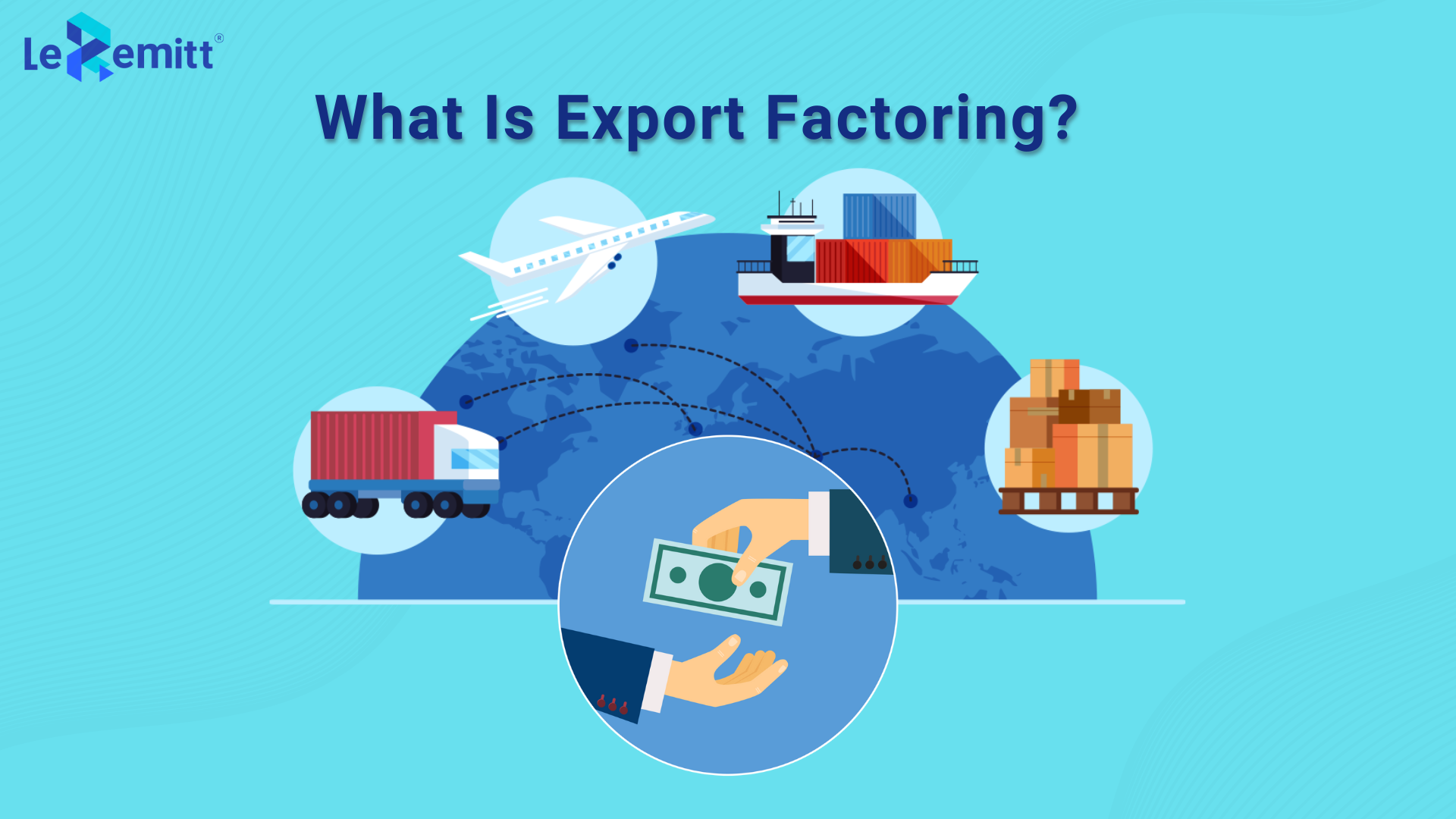What Is Export Factoring and What Is Its Role in Exports?
As an exporter, learning about financing options for your international trade is essential whether you are new or well-established. Export factoring is an option that is part of trade finance solutions that can help you manage your cash flow and reduce the risks associated with the export trade, depending on the terms you have agreed upon.
Before we dive into the various aspects related to this financing option, let’s explore what is export factoring.

What is export factoring?
When you transact with a buyer for exports, you get an invoice (account receivable) that includes payment terms for your exports. You can then sell this invoice to a bank or financial institution at a discount. This process is known as factoring. Instead of waiting for the buyer to pay, the seller—in this case, the exporter—transfers the risk and onus of collecting payment to the bank or financial institution. The exporter does this by submitting the invoice and other documents like the letter of credit and bill of exchange (if available) to authenticate the transaction. The price the exporter has to pay is the difference between the discounted amount and the total amount due on the bill.
How does export factoring work?
1. Sale: Typically, the process starts when the exporter sells their products or services to an international buyer on credit terms. An invoice with payment terms extending from 1 month to 3 months will be generated in most instances.
2. Factoring agreement: Since the payment will take a while, the exporter will reach an agreement with a bank or financial institution on the terms for factoring. The factoring agreement will include terms like the discount rate and portion of the invoice value offered in advance.
3. Funding: The factoring entity will provide immediate access to funds as agreed upon, which will help the exporter keep their business running.
4. Collection: In such an export factoring arrangement, the factoring entity will take on the activities and responsibilities related to collecting the amount due on the invoice. This will include reminders, communications, and any dispute that may arise.
5. Closure: Once the buyer pays the amount due, the factoring agent will release any residual payment to the exporter after deducting the due fees and charges.
What are the benefits of export factoring?
One of the main benefits of export factoring is the immediate release of funds to the exporter, which enables them to keep their operations running. Apart from this, there is the mitigation of risks that exporters face due to delays in payment or non-payment. The extent to which the risk will be mitigated will depend on the exporter's agreement with the bank or financial institution.
Another benefit of export factoring is transferring collection ownership from the exporter to the financial institution or the bank. By offering ready access to working capital and removing the responsibility of collections, factoring helps the exporter focus on their core business.
What are the different types of export factoring?
Yes, there are different types of export factoring, and the terms you agree to with the bank or financial institution you are negotiating with will determine them.
| Type of factoring | Risk | Cost |
|---|---|---|
| Recourse | In this case, the exporter will retain some risk if the buyer does not pay the invoice. | This type of factoring will cost less since the exporter also has the onus of collecting dues if the buyer defaults on the payment. |
| Non-recourse | The factoring entity will shoulder the entire responsibility for the collection and take on non-payment risk. | Since the factoring entity is responsible for the collection, it may charge higher fees or offer a lesser percentage of the invoice amount. |
What factors should you consider while considering export factoring options?
As an exporter, you are a business competing in the global market, which means that it is essential to keep prices competitive and costs down. While export factoring is an attractive financing option, it is crucial to consider the factors below before choosing the right option.
1. Factoring cost: The fees will vary based on the buyer’s credentials, risks, and invoice amount. Ensure you are prepared with all the details before approaching a factoring agent.
2. Expertise: An export factor with knowledge and experience in the international market can help you quickly and with the best terms possible.
3. Terms: Before signing on the dotted line, take the time to review and comprehend the terms and conditions of the factoring agreement, such as fees, advance amount, and the onus for collection.
4. In conclusion: success in exports depends on various factors, including export factoring, trade finance options, and a better exchange rate, which are crucial. Want to know how the LeRemitt team and platform can help? Click to learn more!